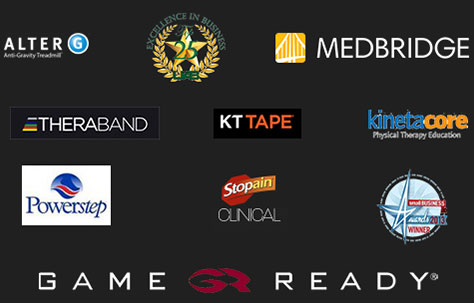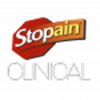Featured Therapist: Jazma Dobbins, PT, DPT, CAPP-Pelvic
The 12 weeks following childbirth present many new challenges to mothers including emotional exhaustion, physical exhaustion, and the tendency to neglect their own health to care for her baby. This period is known as the 4th trimester.
While a women’s body will undergo many changes throughout the first three trimesters of pregnancy, the changes don’t just end at delivery. Even after giving birth, it is important for mothers to recognize and identify changes with their body, know where to turn for support, and how to get relief!
Pelvic Physical Therapy is a specialty branch of orthopedic physical therapy that bridges the gap between the pelvic floor muscles, GI tract, reproductive system, diaphragm and breathing patterns, and posture. Pelvic PTs are especially equipped to treat pelvic, vaginal, and rectal pain, painful intercourse, pregnancy and postpartum, urinary and fecal incontinence, constipation, urinary hesitancy, low back and hip pain, and so much more.
As a new mom, you will encounter many things you did not expect while expecting.
Don’t let this pain or discomfort prevent you from getting back into your routine or enjoying new adventures as a mother. Pelvic Physical Therapy can help women recuperate from childbirth and take their healing into their own hands.
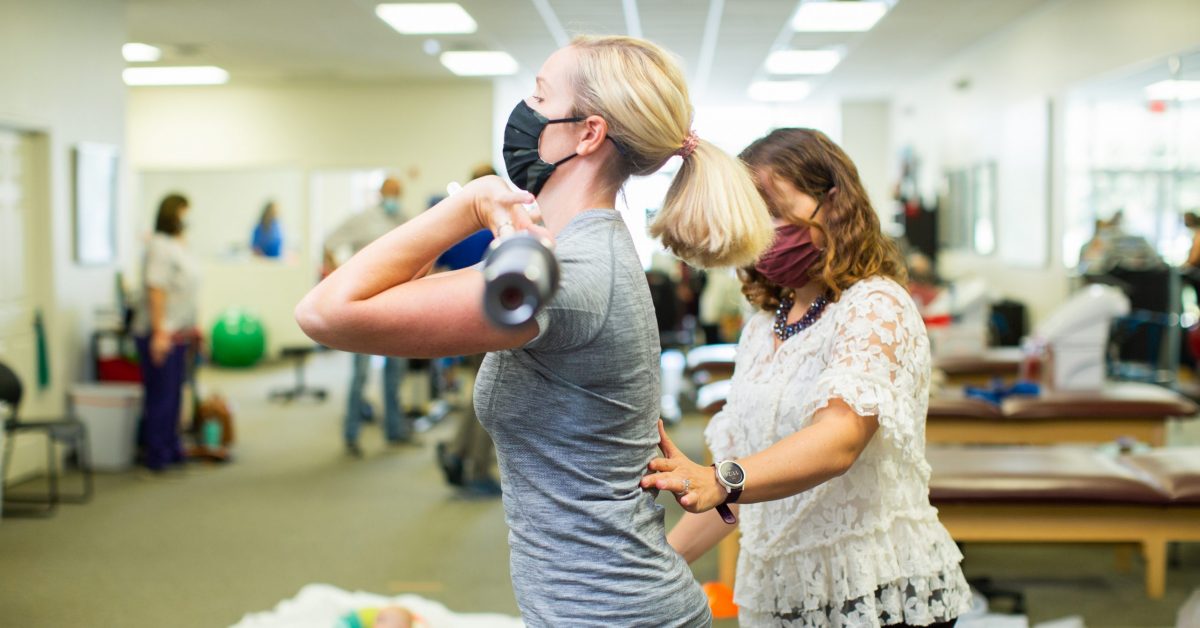
Just because your symptoms may be common does NOT mean they are necessarily normal! Here are some ways that pelvic physical therapy can help.
Scar Tissue/Pain from Scars
Scar tissue is not inherently bad, as it is nature’s “band aid”. However, it can cause a multitude of problems if left to its own devices. Scar tissue related to pregnancy comes in many forms. It could be from an episiotomy, tearing naturally or from a Cesarian Section, aka C-Section.
Episiotomy and perineal body scars can lead to urinary incontinence, pain with intercourse or pain with tampon use. Scar tissue tends to be thicker and more fibrous than normal tissue leading to decreased mobility in that area. When tissues cannot contract and stretch like they need to, dysfunction ensues.
C-section scars can lead to low back pain and hip pain – even decades after delivery! Our tissues are made up of multiple layers and each of those layers has a specific function. Unfortunately scar tissue does not form in nice distinct layers. Instead, it forms as one thick layer and acts as such.

Try this experiment!
Bunch your shirt tightly together just above your pubic bone. Notice where you feel tightness or pulling of your shirt. You will likely feel it pulled tight across your back, you may even feel it pulling in your shoulders or your sides.
Visualize your fascia (the connective tissue that surrounds the muscles) doing the same thing and its easy to understand why low back pain is so common following a C-section.
Pelvic PTs are intimately aware of the connection between scar tissue and pain. We have many tools in our toolbox to help with this tightness. From perineal body ultrasound, to scar tissue mobilization, and myofascial release techniques – our women’s health therapists can identify trouble areas and provide treatment to areas heavy with scar tissue.
Intercourse
Studies have shown that 89%- 91.3% of women experience some form of sexual dysfunction in the 4th trimester, and 37.5% of women still have pain with sex six months after delivery. It’s no mystery that the changes the body will experience throughout pregnancy and birth will have an effect physically and emotionally when women return to sexual activity.
The physiologic and psychological changes that occur in the early postpartum period can lead to vaginal dryness, impaired ability to achieve arousal which effects sexual response cycle, fatigue, and impaired body image.
Pelvic heath PTs can help by evaluating for postural changes that can increase pelvic pain, assess the pelvic floor muscles for tightness or overactivity and then formulate an individualized plan to address those issues.
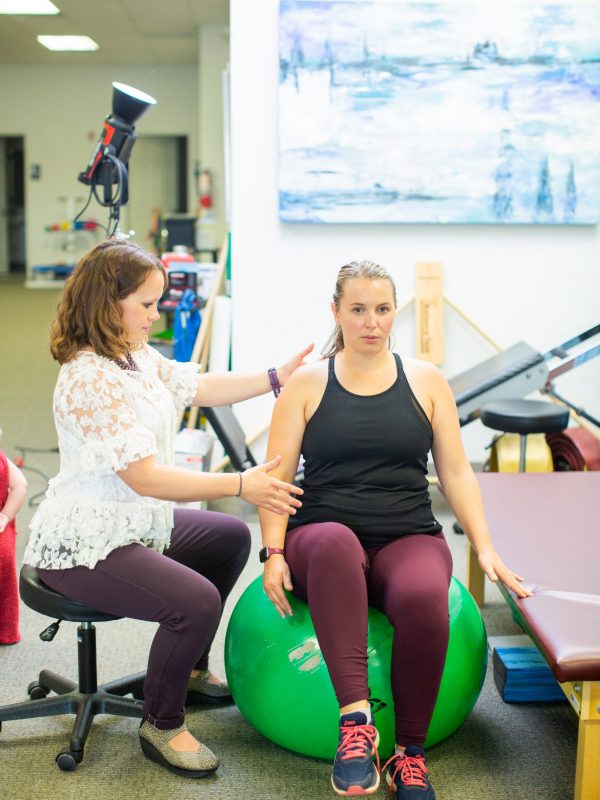
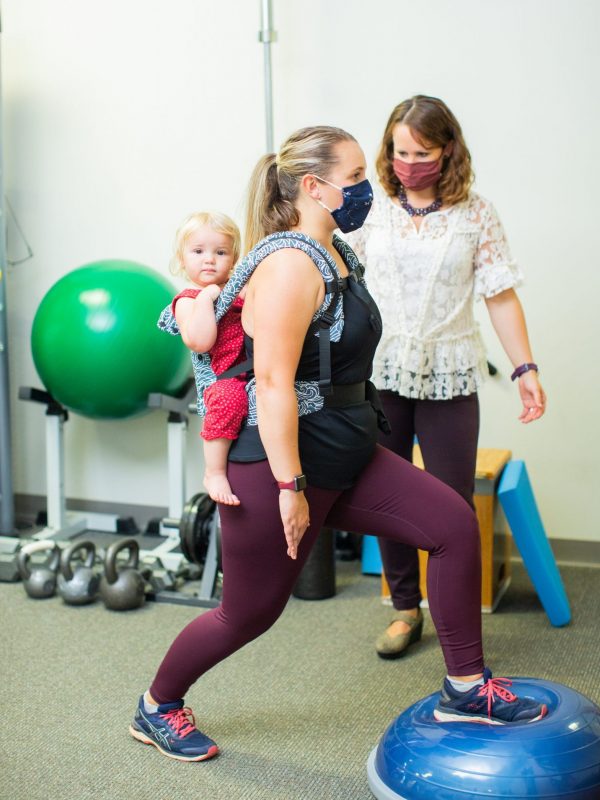
Exercise and Play
Many moms have leaking of urine when they cough, sneeze, laugh, jump, or run. Sadly, its so common that many think its normal. Recently, a new mom told me “I guess I’m one of those women now…Like my mom, unable to play with her kids in the bouncy house without wearing a Depends”.
Stress urinary incontinence is the leaking of urine during periods of increased intra-abdominal pressure such as exercise, coughing, sneezing, and so on. During delivery, the pelvic floor muscles and fascia elongate to allow passage of the baby through the birth canal. This lengthening can result in poor ability to contract the pelvic floor muscles which can contribute to leaking.
Conversely… Our muscles are protective of our joints. When our joints experience trauma (such as with childbirth) those muscles can tighten up as if to say “we’re not doing that again sister”.
When the pelvic floor muscles are overly tight, they don’t have the requisite range of motion to help control continence.
For example: consider your biceps muscle. If your bicep is completely contracted and you try to squeeze the muscle further, nothing will happen. The same concept can be applied to the pelvic floor muscles. If they are already contracted, they will not have the motion to close off the urethral sphincter. AKA Kegels are not always the answer!
A pelvic health PT can help determine whether your leaking is from poor coordination, weak muscles, tight muscles, or a combination of these things. Once we know what is causing the problem, we can create a plan to fix it!
The pelvic floor specialists at TherapySouth are well versed in symptoms, pain and limitations that may prevent you from getting back to your routine after childbirth. Our team of physical therapists and women’s health experts are here to help you with this transition and get back to feeling strong, healthy and confident. Give us a call to learn more about our women’s health services and to request an appointment.
Dr. Jazma Dobbins DPT, CAPP-Pelvic received her Doctorate of Physical Therapy from the University of Alabama at Birmingham and her pelvic health training through the Section on Women’s Health now known as the Academy of Pelvic Health. She became interested in pelvic health after experiencing her own issues with pelvic pain and urge incontinence while working as a paramedic in Etowah County.
She lives in Gadsden AL with her husband and fur babies. Her interests include ballet, boxing, and kayaking and spending time with friends and family.



